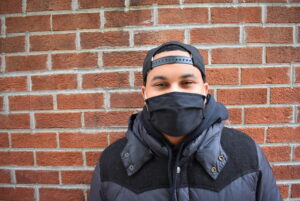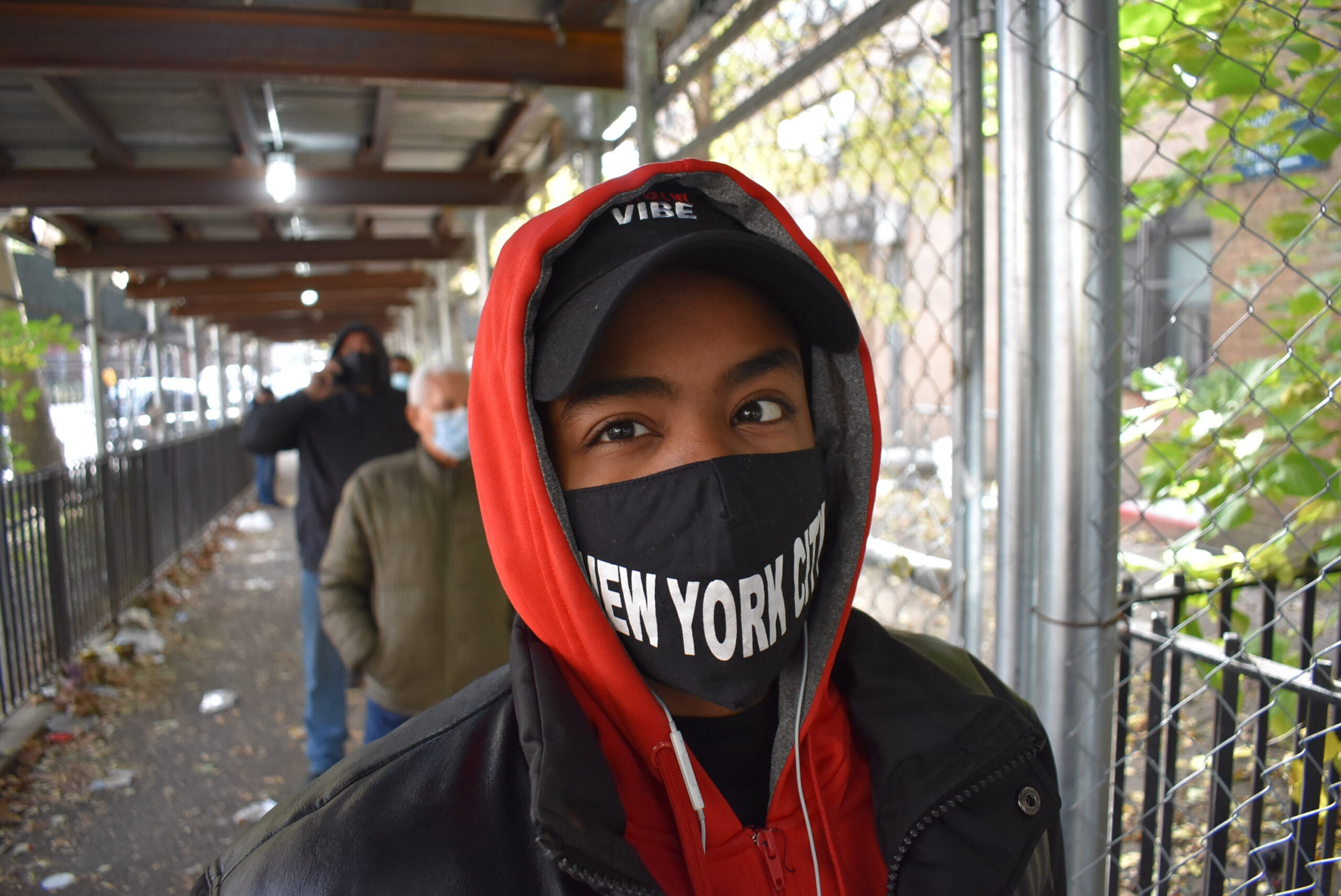Carlos Garcia could have voted in the last presidential election, but he said it slipped his mind. Now 21 years old, he feels strongly about the act of voting.
“I do it to help my family, and it’s to vote for the people who couldn’t vote,” he said.
However, no specific issue was of major concern for Garcia as he waited to fill out his ballot at the Mitchel Community Center on the morning of Nov. 3.
“As to why I’m voting and the specific reasoning, I’m not really aware about it,” he said. “I don’t really have an answer for that.”
Some voters said they were voting for the first time because they were concerned about specific issues such as the COVID-19 pandemic, police brutality and affordable housing. Others said they voted for the first time just because they could.
Roughly 9 million first-timers had voted by Tuesday afternoon, according to a report from Targetsmart, a Democratic data and data services firm. That’s almost twice as many first-timer voters from the 2016 election.
The line at the polling site across from the 40th Precinct station house wrapped around the corner and wound down Alexander Avenue. A handful of younger and more able-bodied volunteers stood in line, holding spots for senior citizens and handicapped voters. New York State Assembly District 84 candidate Amanda Septimo chatted with voters and passed out fliers.
Hayley Gutierrez, 18, said she voted because she wants to protect reproductive rights for women.
“I’ve heard about trying to take away birth control, stuff like that, and I don’t want that,” she said.
President Barack Obama’s Affordable Care Act mandated employer-sponsored insurance cover birth control – the pill, IUDs and other implants — without a copay. When President Donald Trump took office in 2016, regulations were proposed that would allow employers to deny coverage if they had a religious or moral objection to contraception. In July of this year, the Supreme Court upheld those regulations in the case of Little Sisters of the Poor Saints Peter and Paul Home v. Pennsylvania.

Rashon Taliaferro, 19, said he voted because he wants peace in his community.
“I just care about, like, back then, a few months ago, the rioting, and stuff like that,” he said. “I just pray that it stops, and hopefully my voting will cause an impact so that it can decrease.”
This summer saw a nation-wide movement against police brutality and racism after the killings of George Floyd, Breonna Taylor, Ahmaud Arbery and other people of color mainly at the hands of police officers. Cities across the country ignited in protests and, in some cases, riots. In Mott Haven in July, police allegedly corralled, injured and wrongfully detained hundreds of peaceful protestors, according to a report from Human Rights Watch.
At the Mill Brook Community Center, the short queue to vote was littered with trash. Old newspapers and rubber gloves lay beside crushed bags from McDonalds and Popeye’s.
Danielle Greene, 27, waited to cast her vote.
Greene said she didn’t have any particular reason for voting other than a suggestion from her parents. They offered a common adage.
“They said every vote counts,” she said.

